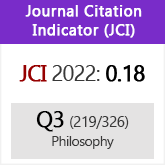The Crisis of the Notion of Lawfulness and the Defense of the Law by Socrates
DOI:
https://doi.org/10.3989/isegoria.2023.69.21Keywords:
Law, Unwritten-law, Persuasion, Obedience, DemocracyAbstract
In this essay I analyze Socrates’ controversial stance regarding the laws of Athens; both the democratic positive law and the traditional and unwritten law. I survey the sources we have, especially Plato’s Apology and Crito, and Xenophon’s Memorabilia, and I conclude that, throughout his long life, Socrates never stopped trying to persuade his city and his fellows of what was just, maintaining that it was not fair under any circumstances to do harm, nor to break the laws or orders of a superior authority (human or divine).
Downloads
References
Banfi, A. (2012). "Qualche considerazione interna al controllo di legittimità a Atene", en E. Cantarella, M. Gagarin, J. M. Modrzejewski, G. Thür, eds., Symposion 2011, Wien, 49-74. https://doi.org/10.2307/j.ctt1vw0q8s.9
Bertelli, L. (1989). "Metabolé politeion", Filosofia politica 3.2, 275-326.
Brickhouse, Th. C., Smith, N. D. (1994). Plato's Socrates, New York-Oxford, Oxford University Press. https://doi.org/10.1093/oso/9780195081756.001.0001
Brulé, P. (2023). Socrate l'Athénien, Paris, Les Belles Lettres.
Camassa, G. (2003). "I greci davanti al problema del mutamento", Quaderni di Storia 57, 147-172.
Canevaro, M. (2015). "Making and Changing Laws in Ancient Athens", en M. Canevaro, E. Harris, eds., The Oxford Handbook of Ancient Greek Law, Aug. 2015, on-line, 46 pp. https://doi.org/10.1093/oxfordhb/9780199599257.013.4
Carawan, E. (2007). "The Trial of Arginusae Generals and the Dawn of 'Judicial Review'", Dike 10, 19-56.
Cerri, G. (2010). "Il significato dell'espressione 'leggi non scritte' nell'Atene del V secolo a.C.: formula polivalente o rinvio ad un corpus giuridico di tradizione orale?", Mediterraneo Antico 13.1-2, 139-146.
Colson, D. (1985). "On Appealing to Athenian Law to Justify Socrates' Disobedience", Apeiron 19.2, 133-151. https://doi.org/10.1515/APEIRON.1985.19.2.133
Connor, W. R. (1991). "The Other 399: Religion and the Trial of Socrates", en M. A. Flower, M. Tolos, eds., Georgica: Greek Studies in Honour of G. Cawkwell, London, University of London, 49-56. https://doi.org/10.1111/j.2041-5370.1991.tb02204.x
Danzig, G. (2014). "Alcibiades versus Pericles: Apologetic Strategies in Xenophon's Memorabilia", Greece & Rome 61.1, 7-28. https://doi.org/10.1017/S0017383513000211
Dorion, L.-A. (2003). Xénophon, Mémorables. Introduction Générale, Paris, Les Belles Lettres.
Dorion, L.-A. (2010). "The Straussian Exegesis of Xenophon: The Paradigmatic Case of Memorabilia IV.4", en V. Gray, ed., Xenophon (Oxford Readings in Classical Studies), Oxford University Press, 283-323.
Dorion, L.-A. (2018). "Plato and Xenophon on the Different Reasons that Socrates Always Obeys the Law", en D. Danzig, D. Johnson, D. Morrison, eds., Plato and Xenophon. Comparative Studies, Leiden-Boston, Brill, 487-509. https://doi.org/10.1163/9789004369085_020
Giannantoni, G. (1972). ¿Qué ha dicho verdaderamente Sócrates?, Madrid, Doncel, [Florencia 1971].
Gray, V. J. (1998). The Framing of Socrates. The Literary Interpretation of Xenophon's Memorabilia, Stuttgart, Franz Steiner Verlag.
Gray, V. J. (2004). "Le Socrate de Xénophon et la démocratie", Les études philosophiques 69 (L. Brisson y L.-A. Dorion, eds., Les écrits socratiques de Xénophon), 141-176. https://doi.org/10.3917/leph.042.0141
Hansen, M. H. (1995). The Trial of Sokrates from Athenian Point of View, Copenhagen, Kongelige Danske Videnskabernes Selska.
Harris, E. M. (2006). "Antigone the Lawyer, or the Ambiguities of Nomos", Democracy and the Rule of Law in Classical Athens. Essays on Law, Society and Politics, Cambridge, Cambridge University Press, 41-80. https://doi.org/10.1017/CBO9780511497858.005
Hirzel, R. (1887). "Polykrates' Anklage und Lysias' Verteidigung des Sokrates", Rheinisches Museum für Philologie 42, 239-250.
Humbert, J. (1931). "Le pamphlet de Polykratès et le Gorgias de Platon", Revue de Philologie 57, 20-77.
Irwin, T. H. (1989). "Socrates and Athenian Democracy (Review: The Trial of Socrates by I. F. Stone)", Philosophy and Public Affairs 18.2, 184-205.
Johnson, D. M. (2003). "Xenophon's Socrates on Law and Justice", Ancient Philosophy 23, 255-281. https://doi.org/10.5840/ancientphil200323234
Kraut, R. (1984). Socrates and the State, Princeton, Princeton University Press.
Kroeker, R. (2009). "Xenophon as a Critic of the Athenian Democracy", History of Political Thought 30.2, 197-228.
Menzel, A. (1979). "Untersuchungen zum Sokrates Process", Hellenica. Gesammelte kleine Schriften, Aalen [Baden bei Wien 1938], Scientia Verlag, 5-65.
Montuori, M. (1981). Socrates. Phisiology of a Myth, Amsterdam, Brill, [Firenze, 1974].
Morrison, D. (1995). "Xenophon's Socrates on the Just and the Lawful", Ancient Philosophy 15, 329-347. https://doi.org/10.5840/ancientphil19951521
Morrison, D. (2001). "Some Central Elements of Socratic Theory", Polis. The Journal of the Society of Greek Political Thought 18.1-2, 27-40. https://doi.org/10.1163/20512996-90000030
Nails, D. (2009). "The Trial and Death of Socrates", en R. K. Balot, A Companion to Greek and Roman Political Thought, Pondicherry, Wiley-Blackwell, 323-338. https://doi.org/10.1002/9781444310344.ch21
Nightingale, A. W. (1999). "Plato's Lawcode in Context. Rule by Written Law in Athens and Magnesia", Classical Quarterly 49.1, 100-122. https://doi.org/10.1093/cq/49.1.100
Ober, J. (2000). "Living Freely as a Slave of the Law. Note on Why Sokrates Lives in Athens", en P. Flensted-Jensen; T. Heine Nielsen; L. Rubinstein, eds., Polis and Politics: Studies in Ancient Greek History Presented to Mogens Herman Hansen on his Sixtieth Birthday, Copenhagen, Museum Tusculanum Press, 541-552.
Poddighe, E. (2019). "Agraphoi nomoi e politeia nel discorso funebre di Pericles", Dike 22, 3-80.
Rosen, F, (1998). "A Creature of Moderns Scholarship: Disobedience and the Crito Problem", Polis. The Journal of the Society of Greek Political Thought 15. 1-2, 1-11. https://doi.org/10.1163/20512996-90000001
Rowe, C. J. (2001). "Killing Socrates: Plato's Later Thoughts on Democracy", Journal of Hellenic Studies 121, 63-76. https://doi.org/10.2307/631828
Salduti, V. (2015). "Il ritorno alle leggi sovrane", en F. Lucrezi, M. Marazzi, V. Salduti, C. Simonetti, eds., Leggi e limite, Napoli , Editoriale Scientifica, 95-135.
Sebell, D. (2021). Xenophon's Socratic Education. Reason, Religion, and the Limits of Politics. Philadelphia, U. of Philadelphia Press (iBook). https://doi.org/10.9783/9780812297843
Solana Dueso, J. (2013). Más allá de la ciudad. El pensamiento político de Sócrates, Zaragoza, Institución Fernando el Católico (CSIC).
Strauss, L. (1965). Natural Right and History, Chicago-London, The University of Chicago Press [1953].
Strauss, L. (1972). Xenophon's Socrates, Ithaca & London, Cornell University Press.
Vlastos, G. (1983a). "The Historical Socrates and Athenian Democracy", Political Theory 11.4, 495-516. https://doi.org/10.1177/0090591783011004002
Vlastos, G. (1983b). "The Socratic Elenchus", Oxford Studies in Ancient Philosophy 1, 27-58.
Walther, M. (2002). "Wider den Legalismus in der Ethik. Der Gegensatz von Natur (physis) und Norm (nomos) und die Ansätze zu einer Utilitarismus (Tugend-) Ethik bei Antiphon", S. Kirste, K. Waechter, M. Walther, eds., Die Sophistik. Entstehung, Gestalt und Folgeprobleme des Gegensatzes von Naturrecht und positiven Recht, Stuttgart, Franz Steiner Verlag, 41-58.
Woozley, A. D. (1979). Law and Obedience. The Arguments of Plato's Crito, London, Duckworth.
Published
How to Cite
Issue
Section
License
Copyright (c) 2023 Consejo Superior de Investigaciones Científicas (CSIC)

This work is licensed under a Creative Commons Attribution 4.0 International License.
© CSIC. Manuscripts published in both the printed and online versions of this Journal are the property of Consejo Superior de Investigaciones Científicas, and quoting this source is a requirement for any partial or full reproduction.All contents of this electronic edition, except where otherwise noted, are distributed under a “Creative Commons Attribution 4.0 International” (CC BY 4.0) License. You may read here the basic information and the legal text of the license. The indication of the CC BY 4.0 License must be expressly stated in this way when necessary.
Self-archiving in repositories, personal webpages or similar, of any version other than the published by the Editor, is not allowed.














